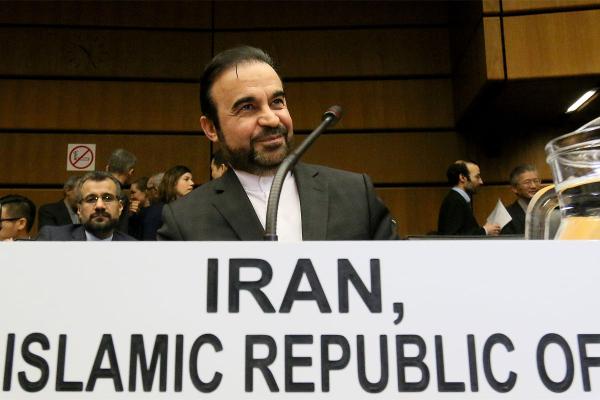-
Tips for becoming a good boxer - November 6, 2020
-
7 expert tips for making your hens night a memorable one - November 6, 2020
-
5 reasons to host your Christmas party on a cruise boat - November 6, 2020
-
What to do when you’re charged with a crime - November 6, 2020
-
Should you get one or multiple dogs? Here’s all you need to know - November 3, 2020
-
A Guide: How to Build Your Very Own Magic Mirror - February 14, 2019
-
Our Top Inspirational Baseball Stars - November 24, 2018
-
Five Tech Tools That Will Help You Turn Your Blog into a Business - November 24, 2018
-
How to Indulge on Vacation without Expanding Your Waist - November 9, 2018
-
5 Strategies for Businesses to Appeal to Today’s Increasingly Mobile-Crazed Customers - November 9, 2018
UN closes the books on decade-long nuclear probe of Iran
The UN nuclear watchdog’s 35-nation board decided on Tuesday to close its investigation into whether Iran once had a nuclear weapons programme, opting to support Tehran’s deal with major powers rather than dwell on its past activities.
Advertisement
The probe had to be formally ended as part of a deal between Iran and six nations to crimp Iranian nuclear programs that could be used to make weapons in exchange for the removal of economic sanctions.
Diplomats said the International Atomic Energy Agency’s board of governors unanimously approved a resolution drafted by the US and five other countries that will close the investigation in the coming weeks. But the nuclear deal could not go into full force until the IAEA declared that it had fully investigated the question of old nuclear weapons work.
It said Iran conducted “a range of activities relevant to the development” of a nuclear bomb before the end of 2003 in a “coordinated effort”, and that some activities continued until 2009.
Iran violated a United Nations resolution in October when it test-launched a missile capable of carrying a nuclear warhead, a United Nations panel of experts has concluded in a report that could lead to sanctions.
The Obama administration and the IAEA have argued that the nuclear deal reached between Iran and the six world powers-the U.S., the U.K., Russia, China, France and Germany-allows for much greater scrutiny of Iran’s nuclear program than in the past.
Amano hailed the “very important milestone”. “We can not be complacent”.
Mr. Amano said that while Iran was working “at quite high speed” to meet its commitments, the agency would need ” some weeks” to assess whether it had done everything required.
Under the deal Iran has pledged to slash the number of centrifuges – which “enrich” uranium for peaceful uses but also for a bomb – from around 19,000 to 6,104, of which 5,060 will still enrich. Najafi said that process would be completed “within two or three days”. Global sanctions are scheduled to be rolled back once the IAEA determines that Iran takes a series of steps to halt its nuclear program, which will likely not happen for months.
An EU statement reflected the will to move on among board members.
“Despite its pitfalls, the report by Mr. Amano clearly indicates that there has been no deviation from peaceful purposes in nuclear materials thus confirming that Iran has always abided by NPT and its program has always been peaceful”, Mohammad Javad Zarif emphasized and expressed hope that the resolution would improve cooperation between Iran and the IAEA.
Despite Iran’s “long history of concealment, denial and deception”, the July deal is “forward-looking”, the U.S. ambassador to the IAEA, Henry Ensher, said Tuesday.
Advertisement
“Nothing has changed”, she declared. What did the years-long, formal investigation into Iran’s alleged nuclear weapons program find?





























